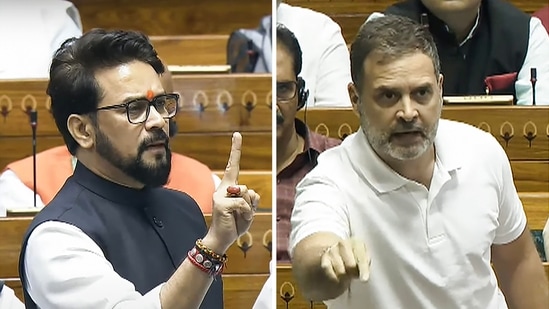
Thakur, the Union Minister for Information and Broadcasting, made his remarks in a session of the Lok Sabha, prompting a swift response from Congress. The party contends that Thakur’s statements were inaccurate and misleading, potentially undermining the integrity of parliamentary procedures. However, various sources suggest that the Congress notice challenging Thakur's comments may not hold substantial weight.
Sources close to the matter indicate that while Thakur's remarks were recorded in the parliamentary minutes, they are not considered a serious breach or deviation from established norms. Thakur's statements primarily addressed procedural aspects and the efficiency of parliamentary debates, which some observers view as routine criticisms rather than significant allegations.
Congress’s response includes a formal notice questioning the validity of Thakur’s statements. The party argues that the comments misrepresented the legislative process and aimed to discredit their contributions. Yet, sources familiar with parliamentary practices believe that such notices are not uncommon and often lack substantial impact unless they directly challenge procedural rules or ethical standards.
The debate highlights ongoing tensions between the ruling party and opposition. Thakur’s comments reflect broader discussions about parliamentary efficiency and the opposition's role, which have been contentious topics in recent legislative sessions. Thakur's position as a senior minister adds weight to his statements, but the overall effect on parliamentary discourse remains limited according to some analysts.
The current situation underscores a pattern of frequent disputes between the government and opposition, particularly regarding procedural criticisms and legislative conduct. As such, the impact of Thakur’s remarks and Congress's notice is likely to be minimal unless further evidence or procedural violations are demonstrated.
In the broader context, these disputes illustrate the challenges within parliamentary operations and the dynamics between different political factions. The focus on Thakur’s statements, while notable, is part of a recurring cycle of political debate that characterizes Indian legislative sessions.
The political landscape continues to be shaped by such controversies, reflecting ongoing debates about governance, accountability, and the role of opposition parties in shaping legislative discourse.
